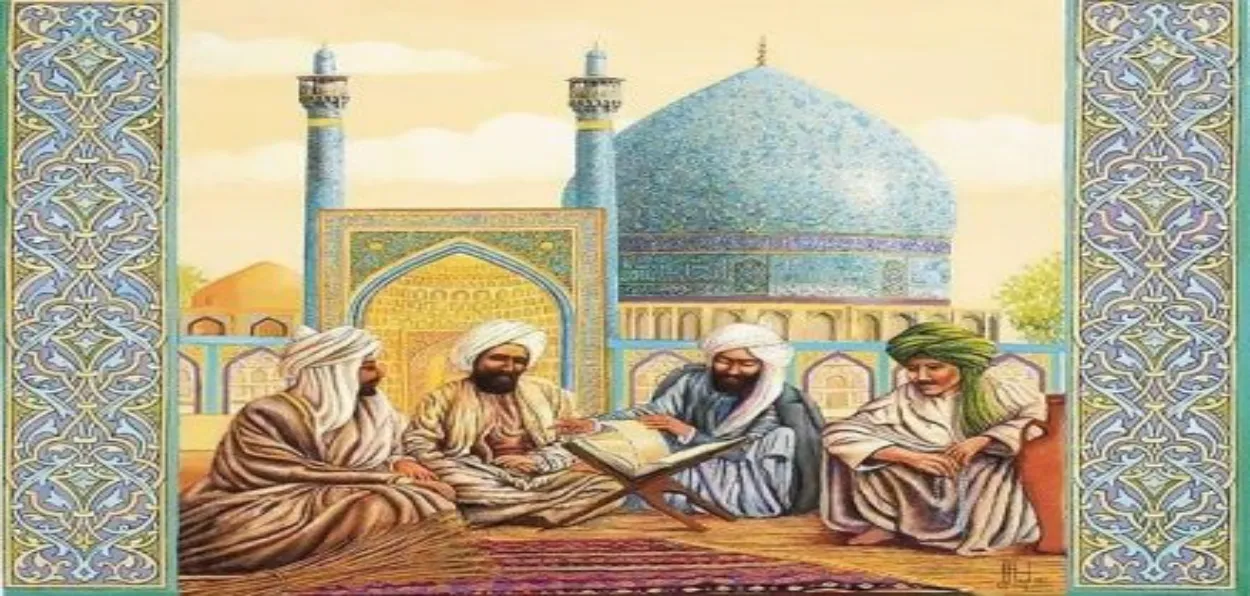
Eman Sakina
Islamic scholars— ‘ulama, the heirs of the Prophets—have always held a central and sacred role in shaping, guiding, and preserving the moral, social, spiritual, and intellectual fabric of Muslim communities. Their responsibility is not limited to delivering sermons or issuing religious rulings; rather, it extends to nurturing hearts, cultivating ethical societies, safeguarding authentic knowledge, and offering direction amidst the complexities of modern life.
Friday Musings
The Qur’an itself honours those who possess knowledge, stating that “Are those who know equal to those who do not know?” (39:9), highlighting the elevated rank of scholars in the sight of God and their indispensable function in society.
Within the Muslim community, Islamic scholars serve as pillars of wisdom, spiritual support, and guidance. They have an impact both locally and globally, influencing people's thoughts, bolstering their faith, overcoming obstacles, maintaining their identities, and advancing justice. Their wisdom continues to be a source of stability and light in a world full of moral ambiguities and quick changes.
In order to ensure that the timeless teachings of Islam endure for future generations, the community must respect their scholarship, encourage their endeavours, and seek knowledge from reliable and authentic sources.
The first and most fundamental role of Islamic scholars is to preserve and transmit authentic knowledge. From the era of the Companions until today, scholars have carried the responsibility of safeguarding the Qur’an, the Hadith, and the principles of Islamic jurisprudence. Through meticulous study, memorisation, verification, and teaching, they ensure that Islamic teachings remain pure, reliable, and free from distortions.
They maintain the intellectual heritage of Islam through:
Writing classical and contemporary scholarly works.
Teaching in mosques, madrasas, Islamic universities, and online platforms.
Training future scholars and imams
Preserving chains of transmission (sanad)
Without their devotion, the richness of Islamic scholarship—spanning theology, law, ethics, spirituality, and more—would fade with time.
Islamic scholars play a vital role in building the moral character of individuals and communities. They help people connect religious knowledge with daily life, reminding them of their duties towards Allah and fellow humans.
They guide the community by:
Delivering Friday sermons and educational lectures
Teaching the values of humility, honesty, compassion, and justice
Addressing spiritual problems such as doubt, anxiety, or moral confusion
Encouraging repentance, patience, gratitude, and sincerity
Through their wisdom and understanding of the human heart, scholars help Muslims cultivate a spiritually balanced life, grounded in faith and good character.
One of the most delicate responsibilities of Islamic scholars is providing legal guidance. Modern life presents new issues—technological, medical, financial, and social—that require a deep understanding to determine what aligns with Islamic principles.
Scholars contribute by issuing fatwas based on scriptural evidence and contemporary realities
Advising on ethical medical practices, business transactions, and family matters
Ensuring that Islamic rulings are accessible, relevant, and compassionate
Preventing extremism by offering balanced, evidence-based guidance.
Their jurisprudential expertise ensures that Muslims can practice their faith confidently and correctly, even in rapidly changing times.
In an age where misinformation spreads quickly, scholars serve as defenders of the middle path of Islam. They counter harmful ideologies, clarify misconceptions, and protect the community from manipulation.
They combat extremism by:
Promoting a balanced, authentic understanding of Islam
Refuting false interpretations and cultural distortions
Engaging youth in meaningful dialogue
Offering peaceful, Qur’anic solutions to conflict and societal issues.
When scholars fulfil this role diligently, they preserve unity and prevent fragmentation within the community.
Islamic scholars are not only religious teachers but also social leaders who shape the ethical tone of society. Their guidance influences communal harmony, charity, justice, and public responsibility.
They contribute by:
Encouraging community service, zakat, and charitable projects
Mediating disputes and promoting reconciliation
Supporting the rights of the poor, oppressed, and marginalised
Advising leaders and institutions on ethical governance.
A society guided by knowledgeable scholars thrives in cooperation, fairness, and collective well-being.
ALSO READ: Nimrah Mirza's horses can calm your nerves through Equine Assisted Therapy
With globalisation, Muslims face challenges related to identity, cultural pressure, and assimilation. Scholars help preserve Islamic identity while encouraging meaningful participation in society. True scholarship inspires intellectual curiosity and deep reflection. Historically, Muslim scholars contributed to philosophy, science, medicine, mathematics, and literature—guided by faith.
